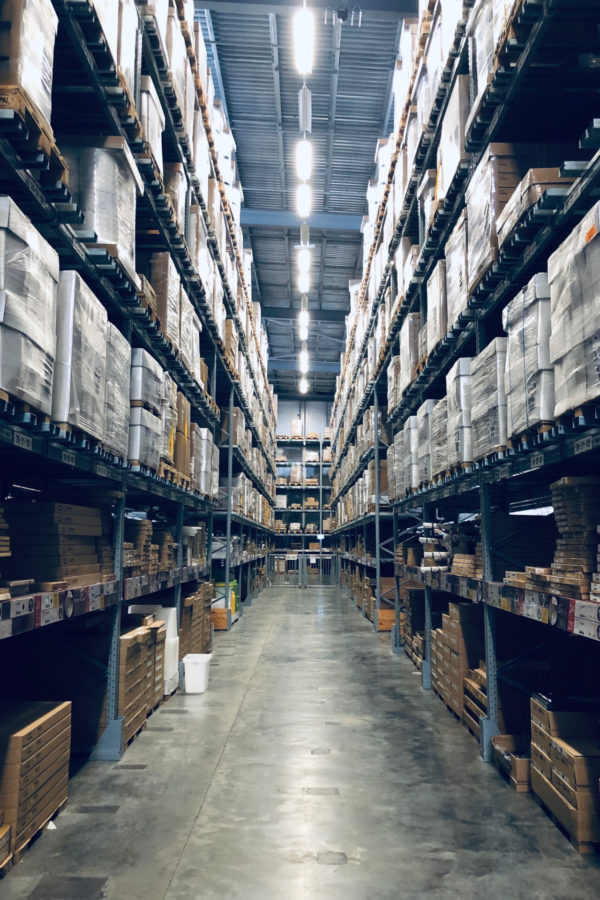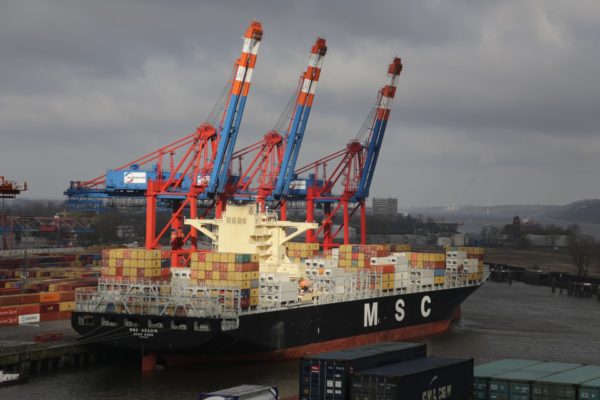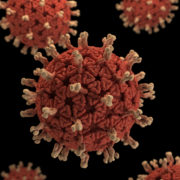Is the food industry affected by the coronavirus sars-cov-2?
Business development • The Coronavirus, which is believed to come from a food market in Wuhan City in Hubei province, has now been given a name: sars-cov-2. The new virus does not pose a direct threat to deliveries or transportation, in terms of infection, as it does not survive outside the body. But there are other clouds of concern in the sky. Now it is important to think about the indirect consequences that the virus outbreak can bring. How prepared is the food industry?
The world has once again become acquainted with a so-called coronavirus. Many people will surely remember the SARS outbreak in 2003 or the MERS outbreak in 2012. Coronavirus is an umbrella term for a virus family that originates in wildlife. The latest in the line is sars-cov-2, which got its name from the English term ‘coronavirus disease 201’. Media reporting is mainly about the number of sick and dead and how the virus is spreading to new places around the world. But what is the situation in the food industry; has the virus been activated with full force even in our area? We will discuss the food industry and the effects of the virus outbreak in this article.
Risk of infection handling goods
The food industry today is a global industry. Even in the seemingly locally produced product, you can find ingredients and additives that originate elsewhere. The ingredients of these ingredients and additives can, in turn, come from another place. Therefore, there is a risk of finding products where parts of the content come from countries, or areas where the coronavirus is found.
Therefore, the question naturally comes to mind whether the coronavirus can accompany ingredients and additives in the global supply chain of food production, thus spreading to new places.
How is it for example with product packaging. Can an envelope carry the dreaded virus?
Based on what we currently know about the virus, it is unlikely that the virus can be transmitted from one surface to a human being, for example from a pallet, or product packaging. According to the World Health Organization (WHO), it is still not entirely known how long the virus can survive out in the open. However, the experience of previous coronavirus outbreaks indicates that they do not survive very long on, for example, letters, packages, or other goods. Receiving, for example, an envelope is thus without risk, according to WHO.

Stops in the supply chain
But are there other consequences that go beyond the risk of infection?
The nuclear accident in Fukushima is a telling example of unfortunate chain effects. What started as an earthquake became a nuclear accident, which in turn affected the industry and the supply chain. Factories producing components for flash memory were concentrated in the disaster zone. As a result, the price of flash drives increased by 20 percent.
The idea that a virus outbreak can have similar consequences is not very far away. In addition to human suffering in the form of illness and, at worst, death, indirect consequences can be quite problematic.
In recent weeks we have read about shipping, logistics and supply chains that are in many cases, more or less still. This is because people who usually work in factories and in agriculture are quarantined, or entire communities that are almost shut down.
In addition, many cargo ships from other countries are prohibited from docking to the Chinese ports they usually visit. Instead, they are now out on the open sea awaiting the course of events.
The food industry
But what about the food industry? Although there is no direct danger in handling goods, there may be other factors that affect trade in affected areas, such as the fact that, as a food producer, you trade in raw materials from China.
Is this something that food manufacturers have begun to think about? It doesn’t seem that way. At least not in Sweden. According to the Swedish industry organization, Livsmedelsföretagen, no members have expressed concern or asked questions about the coronavirus in terms of direct or indirect consequences.
But have companies in the food industry themselves been affected?
We have asked the two largest grocery stores in Sweden if they have noticed any consequences in their operations, as a result of the coronavirus. For example, if there as been stops or delays in the supply chain. Both grocery stores also have their own brands and products, in a variety of product categories.
The food chain ICA could not answer our questions about whether their products are indirectly affected by the virus outbreak.
ICA’s closest competitor Coop says that they are not significantly affected at present, as a very small part of their food is produced in China. Furthermore, they follow the Swedish Food Agency’s recommendations. There is currently no indication that the virus can be spread through food, according to Coop.
According to Coop, it is difficult to predict how this will develop. They say they are prepared by following the events closely and continuously working to reduce their vulnerability.
It could be problematic to extrapolate the current situation in Sweden with the rest of Europe. But our findings offer a hint of the status and preparation among businesses in the food industry.
The coming months
If the virus is spreading in Europe, there is an imminent risk that the supply chain of both raw materials and other goods will be affected. There have been reports of a lack of containers, which affects companies in the automotive and clothing industry in particular.
The virus is spreading in real-time and the questions we ask ourselves now can quickly become outdated or irrelevant. Although the virus does not appear to have any consequences for the food industry at present, the situation can change rapidly if the virus spreads in Europe.
Possible consequences in the European food industry are limited production capacity, as it becomes more difficult and expensive to obtain raw materials.
Another effect is if the logistics and transport industry is affected in a similar way as in China, where boats cannot dock to ports. But even transport on land can potentially be affected if trucks cannot travel through virus-affected areas.
When a pandemic starts to fade out, problems can also arise. When manufacturing and transportation are going back to normal, there may be a pent-up need that creates bottlenecks and drives up costs.
If there is cause for concern depends on what happens in the coming weeks or months. From a food perspective, there is reason to follow the events closely.
Does Bayn have raw materials from China?
Bayn buys some raw materials from China. For example, in China, some of the stevias we cultivate and sell under the NAVIA brand is grown and used in our sweetened fibre EUREBA. Therefore, we closely monitor the events and keep our distributors and direct customers informed of our actions. We follow the recommendations of the World Health Organization (WHO) and EU authorities.
Please, share this article if you liked it.
[et_social_share]


 Coronavirus is an umbrella term for a particular type of virus that belongs to the coronavirus family. SARS virus (Severe Acute Respiratory Syndrome) and MERS virus (Middle East Respiratory Syndrome) are also coronaviruses.
Coronavirus is an umbrella term for a particular type of virus that belongs to the coronavirus family. SARS virus (Severe Acute Respiratory Syndrome) and MERS virus (Middle East Respiratory Syndrome) are also coronaviruses.


